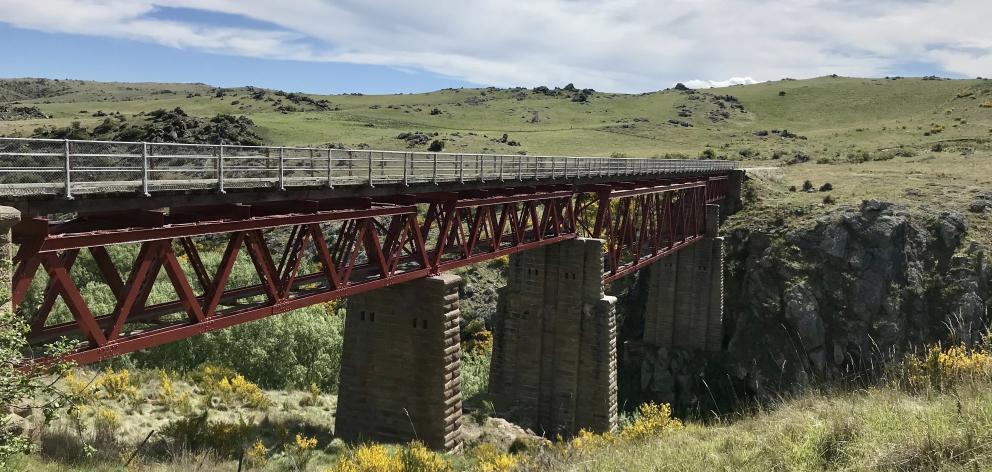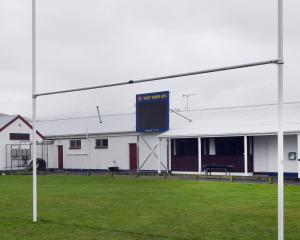
It would also bring more visitors to Middlemarch accommodation, boost employment in Dunedin and produce significant health benefits, Mosgiel-Taieri Community Board chairman Andrew Simms said a report had found.
The Taieri Gorge trail for walking and cycling is not certain to proceed — principally because of reluctance to rip up railway tracks for such a venture — but the idea has been studied.
Its potential value was explored by regional economist Benje Patterson for the Otago Central Rail Trail Trust, which was behind the successful conversion of a disused railway line into a walking and cycling trail between Clyde and Middlemarch.
The popular trail opened in 2000 and Mr Patterson’s full report covering benefits from possibly extending it past Middlemarch through the gorge has not yet been made public.
It could soon be considered by the Dunedin City Council, which is also weighing up how train services might be structured in future.
Mr Simms is part of the trail trust’s Taieri Gorge working group.
"The comprehensive report has been received and it is compelling," Mr Simms said in his community board chairman’s report this month.
The Otago Daily Times has not seen Mr Patterson’s full report, but is aware of some of its highlights.
They include the prospect of Dunedin getting an uplift in spending from trail visitors of between $6.9 million and $11.4m if the trail is developed.
Middlemarch might host up to 80 more visitors a night during the peak trail season, Mr Simms said.
The number of new jobs in Dunedin attributable to a trail extension could be between 35 and 57, he said.
Mental and physical health benefits for Dunedin residents could be valued at between $700,000 and $1.4m a year, he said.
However, such a project would be contentious because at least part of the Taieri Gorge railway track would need to be pulled up and this would end aspirations for restoration of regular train trips between Dunedin and Middlemarch.
The gorge provides a scenic backdrop for train rides out of Dunedin mostly aimed at passengers from cruise ships, although in recent times excursions have typically turned around at Hindon.
Both the future form of Dunedin train services and the possibility of extending the cycling trail are to be considered at an upcoming council meeting and in its 2024-34 long-term plan process.
This will include public consultation.
Mr Patterson’s economic impact report for the trust was completed about the same time as it had been expected discussion would progress about the potential shape of Dunedin train services.
Council chief executive Sandy Graham signalled in September a report about trains was imminent, but it has yet to come before the council and it is not certain to do so this month.
The train trip through the gorge is an acclaimed tourism product for Dunedin.
However, train services — when considered together with track upkeep needed in the gorge — have for years effectively operated at a loss.
In 2020, the bill for deferred maintenance on the gorge track was declared to be about $10m in the longer term.
The train operation has been run under a temporary structure since the Covid-19 pandemic and appears set to be rebuilt.
In the 2022-23 financial year, council-owned Dunedin Railways made a $978,000 loss, which followed a $1.6m loss.
The Strath Taieri Community Board supports having trains run to Middlemarch.
Otago Central Rail Trail Trust chairwoman Kate Wilson said she would be happy to see regular, frequent train services to Middlemarch but suggested anything short of that could be inadequate.
The issue to be grappled with now was how the rail corridor might best be used or developed.
Possible benefits
— Up to an extra $11.4million spend from trail users
— 80 more visitors a night in Middlemarch during the peak trail season
— Create up to 57 more jobs
— Mental and physical health benefits for Dunedin residents of up to $1.4m a year












